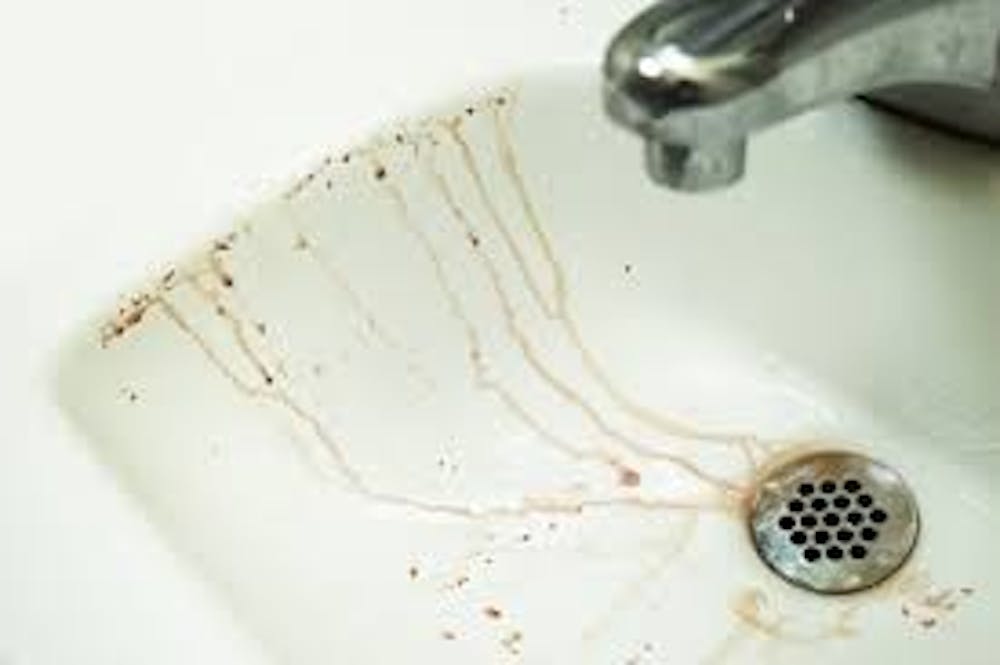It is no surprise that sharing a bathroom with many people is less than ideal. What makes it even worse is when none of the users have any enforced responsibility to ensure that the bathroom stays presentable.
Staffers are given a break from servicing the bathrooms each weekend and thus these bathrooms frequently descend into miserable conditions. Yet, the problem here goes beyond cleanliness: there are issues with basic levels of etiquette, and the lack of obedience to them.
If there is to be a cultural change at the University without wrongly punishing students or infringing on privacy, students need to lead the campaign to clean. Students should encourage one another to treat the common space with respect and become willing to take steps to stop particular offenders from ruining the space for everyone else.
Before discussing solutions, we must establish what specifically makes a given behavior problematic. Any uncleanliness and encroachment on other people’s personal space should not be permitted. For something to be unclean or dirty, it needs to be covered in something which does not belong there.
Where do beard shavings belong? In the trash, not all over the sink and the counters. Where do paper towels and toilet paper belong? In the trash and in the toilet, respectively. Vomit and other bodily substances belong in the toilet, definitely not on or around it. Finally, where do toothpaste and soap go? Down the drain.
While this information should be obvious to most people, it is important that we understand specifically why is not acceptable. Unclean substances, when left out in the open, pose a health and safety risk to those around them. Someone could slip on paper towels left on the ground, and having urine all over the floor certainly is not a way for people to stay healthy.
Is it too much to ask that legal adults at the number-one-ranked University in America do not act like feral children raised by a family of raccoons living in the darkest, deepest bowels of a landfill?
Invading the personal space of others also counts as an improper bathroom behavior. Taking up so much metaphorical, or sometimes literal, space in an area that others cannot engage in normal activities is disrespectable to the dorm community. An example of taking up metaphorical space is blasting music at the highest possible volume while in the shower or talking loudly to friends who are also in the room. Restroom doors are thin, and everyone else in the hallway can hear this music and screaming. Further, this behavior cannot be universalized: if everyone were to play music at that volume, no one would be able to hear their own music, and hence everyone would turn off cease to play any music while in the bathroom since there would be no point in doing so.
In terms of taking up physical space, leaving shampoo and other hygiene products sitting around in the shower or sink is detrimental to the status of bathroom. Along with being gross, this creates an additional obstacle for our cleaning staff, just as all the examples of uncleanliness stated in the paragraph above. If some profligate can somehow argue that it is fine for bathrooms to be unclean, we can ignore their irrational opinions. Advocating for unsafe, vomit-covered bathrooms is absurd.
What can be done? Ultimately, solutions are restricted, much more so than, for example, what the University could do to stop people from trashing hallways. Because of serious privacy concerns, surveillance of the bathrooms is not an option; it would be highly intrusive and offensive. Many theoretical punishments would harm innocent students as well. For example, facilities workers could stop putting toilet paper in the bathroom to limit litter, but that would be unfair to everyone who did not make a mess of the room. Along this line, the only thing workers could do without harming innocent residents is remove hygiene products whenever they are left in the bathrooms.
The most meaningful changes will be from students themselves who confront those who use the bathroom improperly. No one likes confrontation, but it would be especially useful for bystanders to get involved not just for their own sakes, but for the sakes of University staff as well. It would be valiant for students to insist that if someone does not stop trashing the bathroom by, for example, dropping paper towels on the ground, that they will report that individual to the housing office. Yet, without any video evidence of what is occurring in the bathroom, proving someone had done this will be difficult.
Ultimately, if we want there to be any kind of change to conduct in our bathrooms, we will have to speak to either the rambunctious defilers of our common spacers themselves, or we will need to be willing to pick up the phone and contact University administrators who can act. Either way, we need to get the fecal matter into the toilet, not on the seats.

Hunter Campbell is a junior politics major from Sunderland, Vt. He can be reached at hunterc@princeton.edu.








